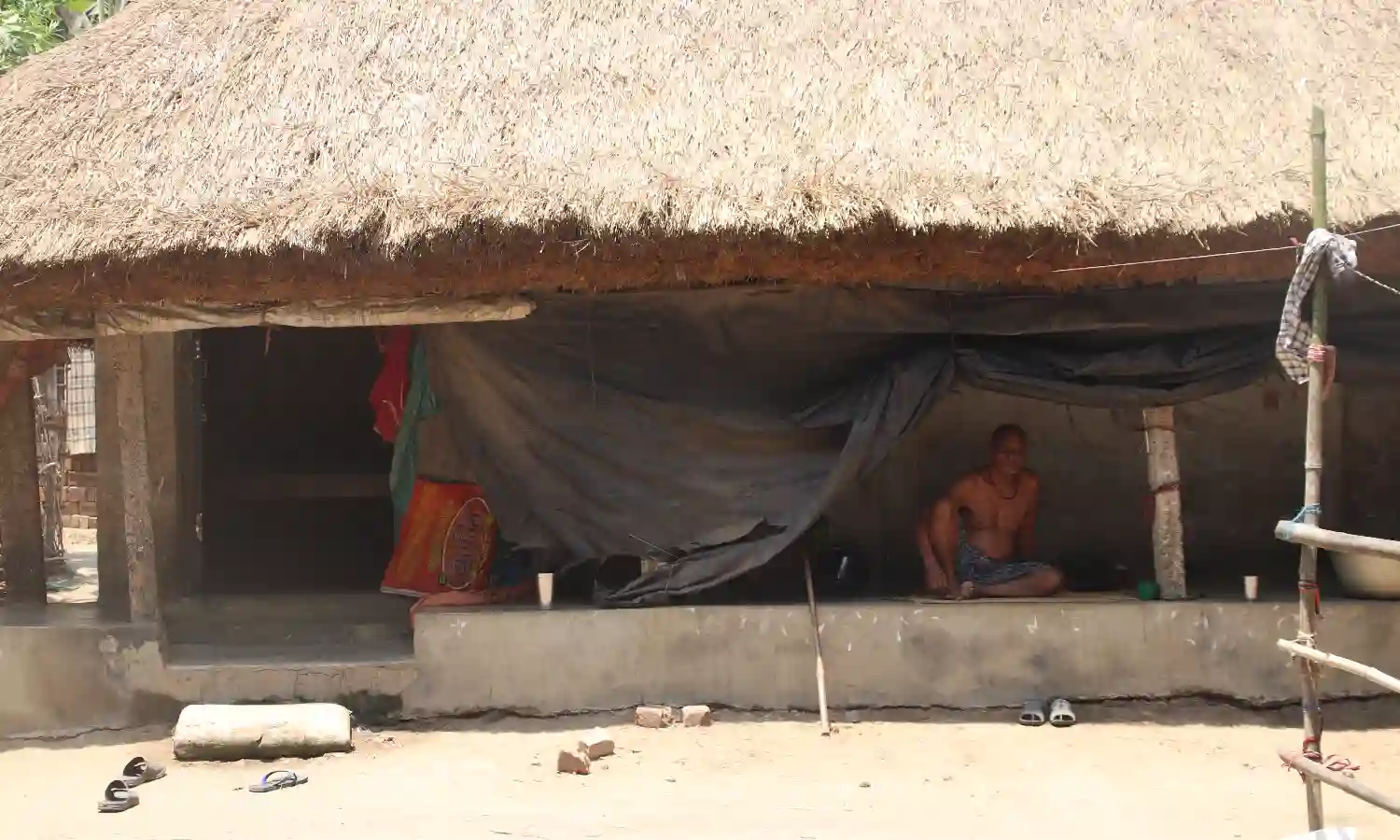Odisha - Villagers Bear The Scars Of Protests, Prefer NOTA
Protests against land grab by big industry

Shanti Das, aged 62, bears a scar on her left arm from an incident two years prior. She conceals it beneath the pallu of her saree. Das was among the hundred villagers who faced lathi charges while protesting against Jindal Steel Works (JSW) Ltd, defending their betel vineyards from demolition in Dhinkia Gram Panchayat of Odisha’s Jagatsinghpur district on January 14, 2022.
Although Dhinkia had successfully thwarted the efforts of the Korean company POSCO to establish an industrial unit in 2017, it could not prevent JSW from doing the same. As Odisha went to polls for both Assembly and Lok Sabha this May, the villagers resolved to cast their votes as NOTA to express their outrage.
"We've lost our means of livelihood. Every day is a struggle. We were threatened, beaten, we cried out for justice, but no one listened. How can they expect us to vote?" a despondent Das said.
Despite protests, arrests, and detentions, JSW acquired 748 acres of land for its 13.2 million tonnes per annum steel plant.
"We voted them into power, and when we fought for our 'maa maati' they accused us of fighting against them. How can we trust anyone anymore?" she added.
This sentiment reverberates throughout the village, home to nearly 550 households and a population of almost 3000, with over one-third belonging to Scheduled Castes (SC) and Other Backward Castes (OBC).
Since January 2022, life for the villagers has changed, but not for the better, they claim. The once profitable beetle vineyards where the villagers employed people and earned between Rs 80,000-1,00,000 in a season, have now vanished. Residents are compelled to either migrate or work as contract laborers on other farms.
“The betel vineyards were our lifeline. For four generations, we cultivated betel on that land. The weather here is ideal for growing crops. We also grew some fruits and vegetables in its periphery," Dilip Das, another Dhinkia resident, recounted. He now works as a contractual farm laborer in a neighboring village, earning between Rs 3,000 to 5,000 a month.
“Even now, we can't sleep peacefully at night. We fear being arrested again for crimes we haven't committed," he added.
In solidarity, the affected families unanimously opted to vote NOTA. "Those elected as our representatives should know they work for the people, not others. Voting NOTA is the best way to express our lack of trust," Dilip said.
Dhinkia will vote on June 1 for the Jagatsinghpur Lok Sabha constituency and Tirtol Assembly constituency.
Approximately 500 km away, on a hilltop, another group of villages faces similar circumstances. For a year, residents of Sijimali Hills have protested against land acquisition for bauxite mining. In February 2023, London-based Vedanta Limited won the bid for the Sijimali Bauxite Block in an auction conducted by the Odisha government.
As protests escalated, law enforcement presence in the area intensified. By August 2023, at least nine leaders associated with the anti-mining protest were booked under the Unlawful Activities Prevention Act (UAPA) and later released on bail.
Odisha boasts over half of India's bauxite reserves, with 95% located in the southwestern districts of Rayagada, Koraput, and Kalahandi. Within these regions dwell approximately 8000 Dongria Kondh tribe members, recognised as Particularly Vulnerable Tribal Groups (PVTGs). The Sijimali area, near Niyamgiri, is home to various tribal groups, including the Kondh community, a subset of the broader Dongria Kondh tribe, as well as the Praja tribe and Dalits.
“Our forests and hills define us. They provide all the resources necessary for our survival. We revere and conserve them, passing them on from generation to generation. How can we consider giving them away?" questions Hiramal Majhi, a 40-year-old Adivasi from Tadadei village in Kalahandi district.
According to a 2022 report in the Journal of Environmental Management, over the past two decades, around half a million people, predominantly Adivasis, have been displaced from these districts due to forest clearing for mining purposes. Between 2001 and 2019, Odisha cleared approximately 1,655 sq km of forest area.
In light of the ongoing protests, villagers said they chose to vote NOTA. "If any candidate had come promising to champion our cause, we would have voted for them. But no one did. We cannot sacrifice our forests and hills for profit. Hence, NOTA is our choice," Lingraj Azad, an anti-mining leader from the region said. Polling in these villages was held on May 13.


